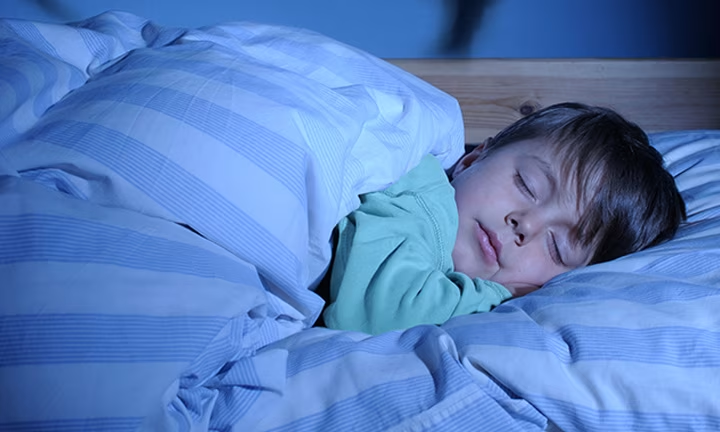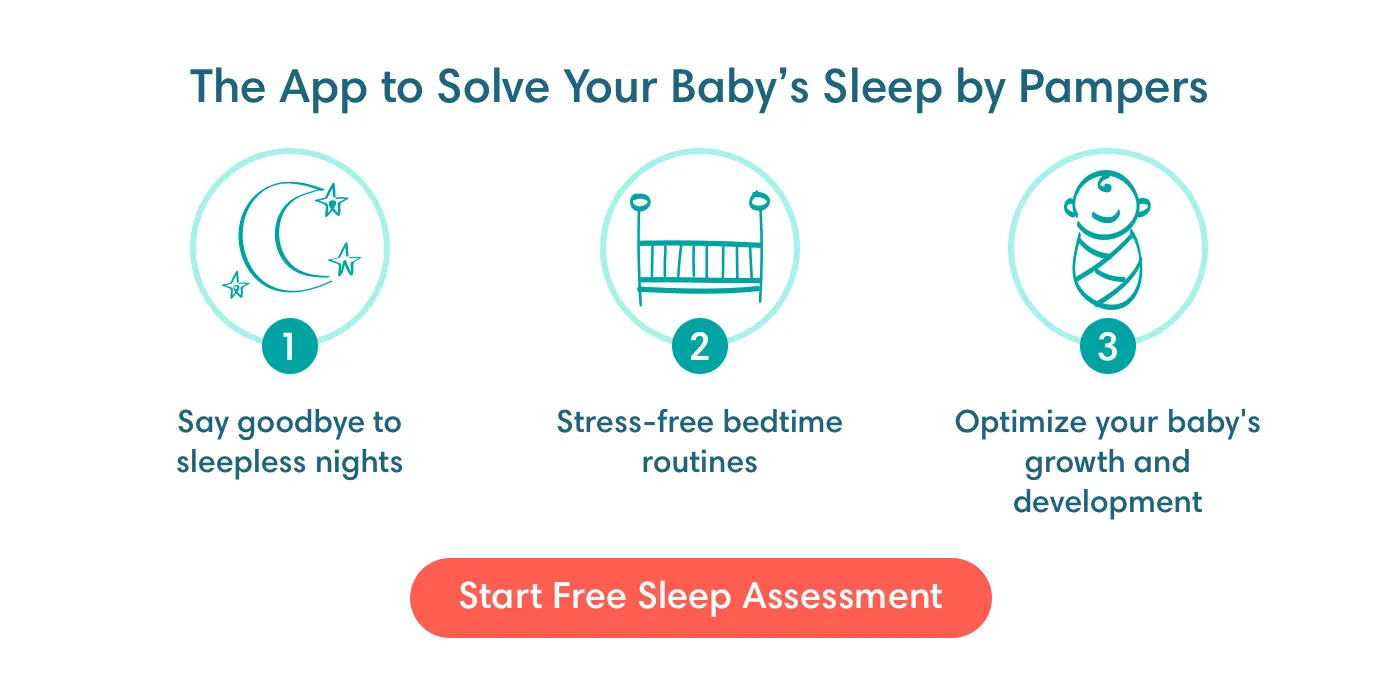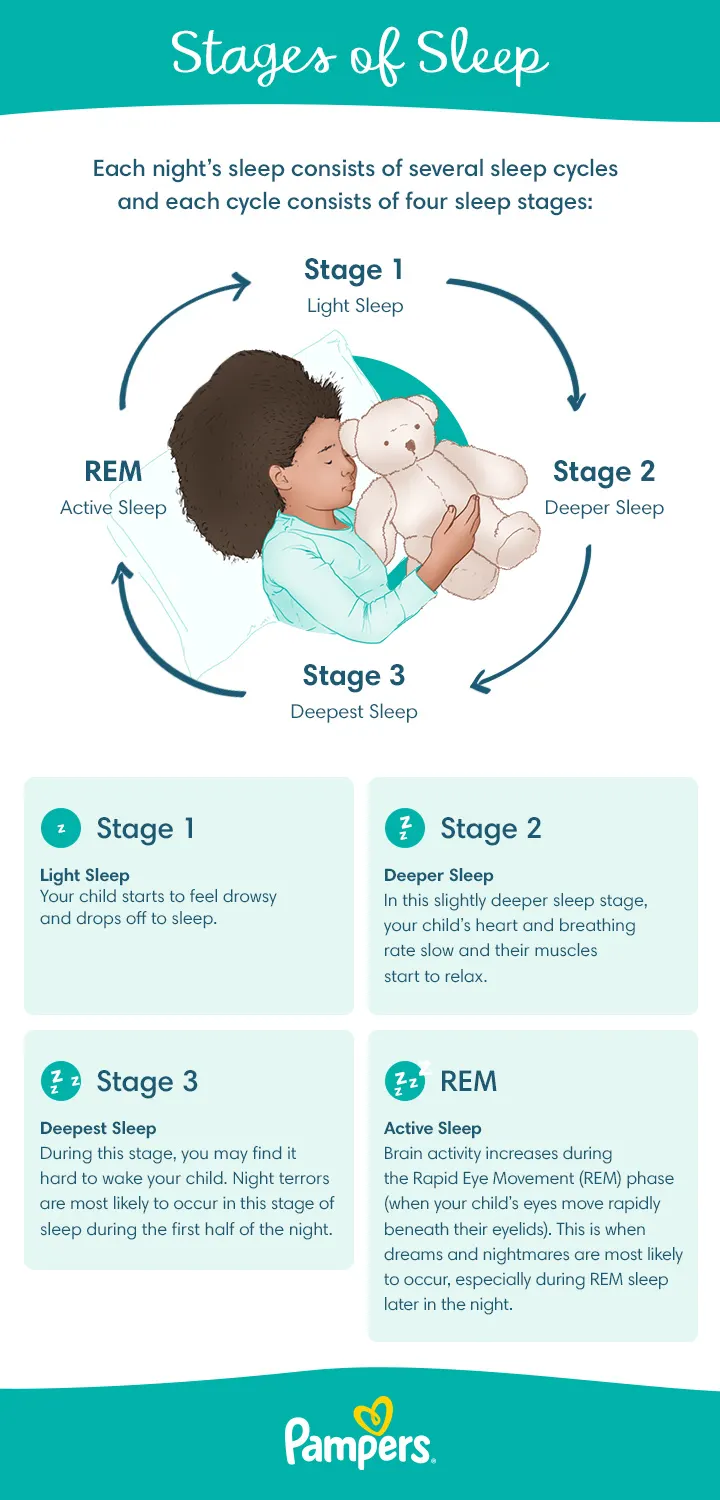
Night Terrors in Toddlers
Night terrors in toddlers are different than nightmares, and although they can look a little frightening to you, rest assured that they’re not harmful to your child. Night terrors typically occur during deep sleep, and if you notice your toddler thrashing around in the night with eyes open, a terrified look and a lack of response, it could be a night terror. Read on to learn what night terrors are, what causes them and how to help if your child has one.
What Are Night Terrors?
Night terrors – also known as sleep terrors – are a type of sleep behaviour that may resemble a nightmare, but they’re very different. Witnessing a night terror can be upsetting for parents, but it’s not harmful to your child and most children outgrow these terrors. Unlike a nightmare, once the night terror is over, your toddler will go back to sleep quickly, and won’t remember it.
An episode may last up to 15 minutes, but you’ll be happy to know that night terrors in children aren’t usually a cause for concern or a sign of a deeper medical issue.
At What Age Do Night Terrors in Children Happen?
Night terrors are common in children from 3 years old to 8 years old, but some parents wonder if they can happen in babies or young toddlers, too. Night terrors in 1-year-old babies or a 2-year-old toddler aren’t common, so they aren’t very likely to occur at this age, although it isn’t impossible.
Night terrors in toddlers and children will vary, with some kids experiencing them only once, whereas others might have multiple episodes. The good news is that almost all children eventually outgrow sleep terrors without the need for specialist treatments.
Night Terror Symptoms and Signs
If your child is having a night terror, you might notice some common signs and symptoms. For example, your toddler might:
If you’re sleeping in separate rooms or happen to be a deep sleeper, you may not even notice that your child is having a night terror, unless you’re woken by the sounds of screaming or thrashing around.
What Causes Night Terrors in Toddlers?
Unlike nightmares, night terrors in toddlers aren’t typically associated with emotional feelings or stress. Rather, night terrors can happen for a few different reasons and typically occur during non-dreaming sleep stage; they often take place within 90 minutes of falling asleep and may last up to 15 minutes.
According to experts, these are some factors that could increase the likelihood of a night terror occurring:
Sleep Stages and Cycles
During sleep, children as well as adults go through several sleep cycles composed of different stages. In most of the cycles, a child is switching back and forth between non-REM sleep and REM sleep, which is when active dreaming occurs.
The ratio of non-REM to REM sleep will vary over the course of the night. The first stage of REM sleep is short but will get longer as the night progresses, while non-REM sleep stages will get progressively shorter.
Here's a breakdown of what happens during a night's sleep:
What Is the Difference Between Night Terrors and Nightmares?
To better understand night terrors vs. nightmares in children, check out the table below:
How to Handle Night Terrors in Toddlers
Night terrors can be upsetting for you as the parent, so it’s natural to seek a treatment. However, the best way to handle an episode is to simply wait it out and make sure your little one doesn’t hurt themself if thrashing around.
Avoid waking your child up from a night terror. If your child does wake up, they may be confused and take longer to settle down and fall asleep again. Children usually fall asleep on their own after night terrors and won’t have any memory of the episode at all.
Although there is no treatment for night terrors, here are a few things that might help prevent some of them:
When to See a Doctor About Night Terrors
Most children will outgrow night terrors and don’t need medical attention. However, if the night terrors are frequent, occur several nights in a row or you’re worried about them, talk to your doctor. The cause could be something simple and easily treatable, like large tonsils, or your doctor may refer your child to a sleep specialist if needed.
FAQS AT A GLANCE
There’s no need to worry about night terrors in toddlers, as they are fairly common and cause no harm to your child. However, if your toddler experiences frequent night terrors multiple night in a row – or if you’re simply curious or worried about them – talk to your doctor.
The Bottom Line
Night terrors in toddlers can be scary for you, and you might feel helpless and worried about what’s happening to your child. The good news is that these sleep disturbances are harmless and your little one will eventually grow out of them.
Unlike nightmares or bad dreams, which can leave your child feeling anxious or scared, kids don’t remember night terrors once they wake up. During an episode, don’t try to wake your child; they’ll settle down and fall back to sleep on their own.
Creating a calming bedtime routine and ensuring your child isn’t overtired could help prevent some episodes. If you’re worried about regular night terrors, you can always consult your doctor for advice, just to be on the safe side.








